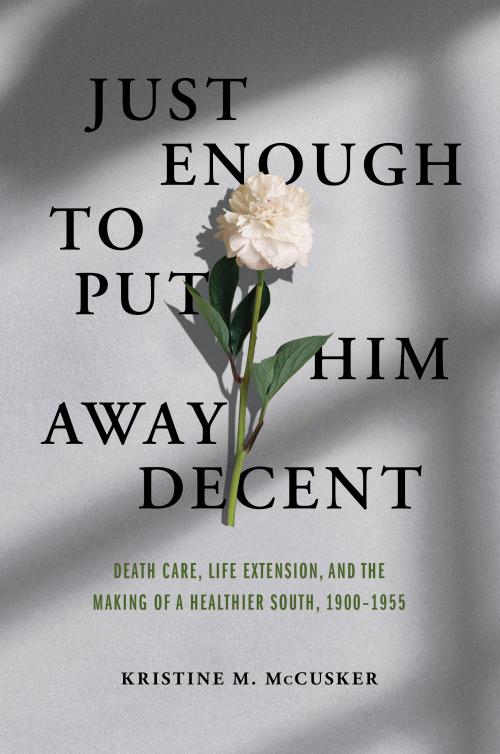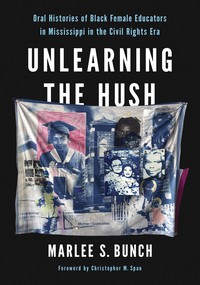
Just Enough to Put Him Away Decent
Cloth: 06/20/2023
About the Book
As the twentieth century began, Black and white southerners alike dealt with low life expectancy and poor healthcare in a region synonymous with early death. But the modernization of death care by a diverse group of actors changed not only death rituals but fundamental ideas about health and wellness.Kristine M. McCusker charts the dramatic transformation that took place when southerners in particular and Americans in general changed their thinking about when one should die, how that death could occur, and what decent burial really means. As she shows, death care evolved from being a community act to a commercial one where purchasing a purple coffin and hearse ride to the cemetery became a political statement and the norm. That evolution also required interactions between perfect strangers, especially during the world wars as families searched for their missing soldiers. In either case, being put away decent, as southerners called burial, came to mean something fundamentally different in 1955 than it had just fifty years earlier.
Reviews
"Drawing on a robust collection of vernacular sources from diverse racial, gendered, and socioeconomic experiences, McCusker captures the nuances of how southerners developed present-day perspectives on death and dying, customs of respect and duty to the dead, and concepts of putting loved ones away decent." --H-Net ReviewsBlurbs
“The history of death in the South during the twentieth century is much more complex, much more dynamically connected to modernizing trends, and much more revealing of social realities than previously imagined. McCusker not only explores historical change, but also the racial and political dimensions of changing attitudes toward death in the context of transformations in notions of health care and life extension.”--Gary Laderman, author of Don’t Think about Death: A Memoir on Mortality







